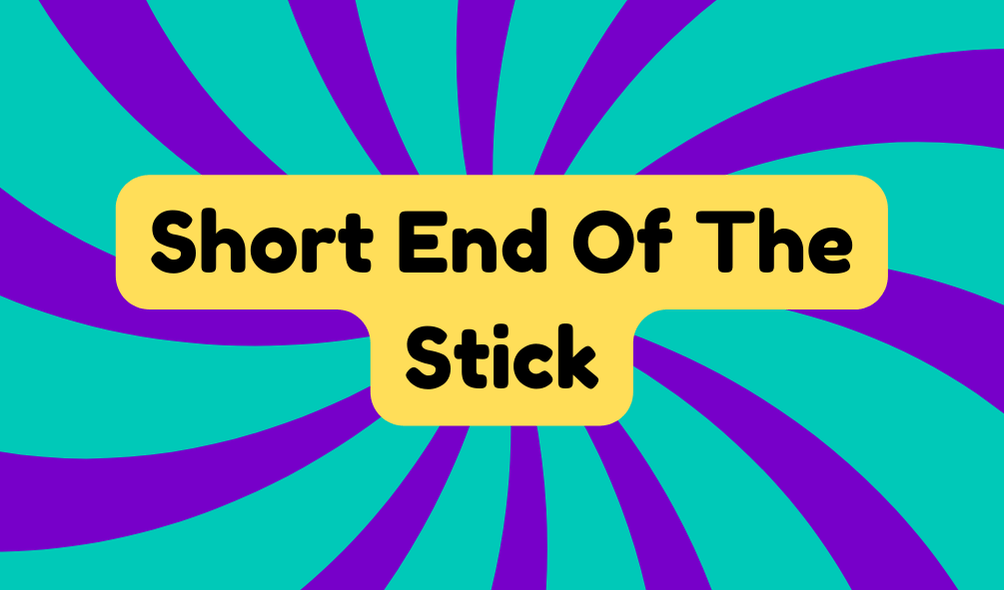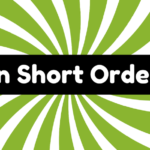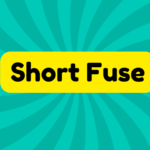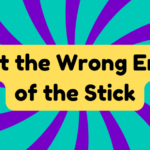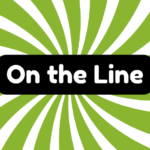The phrase "short end of the stick" refers to situations where one person is unfairly disadvantaged, often feeling cheated or neglected. Originating in the 16th century, it embodies long-standing societal concerns about inequity and injustice. Commonly seen in everyday scenarios, such as unequal work contributions or inequality in rewards, this expression reflects ongoing discussions about fairness in contemporary life. It speaks to the frustrations experienced in various contexts, including workplaces and social settings. Understanding this phrase invites a closer examination of how we perceive and address such imbalances in our own lives and communities. There's more to explore on this topic.
Synonyms
In discussions of inequitable outcomes, several synonyms capture the essence of receiving the "short end of the stick." Terms such as "disadvantage," "inequity," and "setback" articulate similar sentiments of unfavorable situations. These phrases highlight the discrepancies that can arise in various contexts, prompting a critical evaluation of shared resources and opportunities. Consider the following:
- Disadvantage: A condition that puts someone in a less favorable position.
- Inequity: The lack of fairness or justice in the allocation of resources.
- Setback: A reversal in progress, leading to unfavorable conditions.
- Undeserved outcome: Receiving less than what is just or merited.
Example of Sentences
The phrase "short end of the stick" can be effectively illustrated through various example sentences that highlight its application in everyday scenarios. Consider these instances:
- Tom always feels he gets the short end of the stick when it comes to doing the dishes while his siblings relax.
- During the office party, employees received unequal cake slices, leaving some feeling the sting of inequality in workplaces.
- In group projects, one member often completes the majority of the work, demonstrating a lack of fairness in relationships.
- Sarah struggled to negotiate her salary, ultimately ending up with less, which perfectly encapsulates drawing the short straw.
These examples underscore how the phrase conveys feelings of unfairness, revealing the prevalent inequalities within personal and professional environments.
Origin
Dating back to the 16th century, the phrase "short end of the stick" reflects a long history of expressing unfavorable outcomes. Initially articulated as "worst end of the staff," its early roots can be traced in Nicolas Udall's 1542 translation. The language evolution is notable, with John Heywood documenting the change to "stick" in his 1562 writings. This shift underscores how societal contexts influence language. By 1895, the phrase was firmly established in print, yet its origins prompt skepticism regarding the depth of understanding surrounding its meaning. In examining this historical context, it becomes clear that phrases like these encapsulate centuries of shared experiences and perceptions, ultimately serving as a lens on societal views toward fairness and inequity.
Collocations
Collocations surrounding the phrase "short end of the stick" illustrate the linguistic patterns that signal unfairness and inequality in various contexts. These expressions reveal societal attitudes towards disadvantage and inequity, raising questions about fairness:
- "Draw the short straw" indicates randomness in an unfortunate outcome.
- "Short end of the deal" highlights inequity in transactions.
- "Stick to the last" conveys commitment despite challenges.
- "End of the line" suggests a finality often felt by those disadvantaged.
These idiomatic expressions involving "end" and collocations with "stick" sharpen our understanding of language as it reflects human experiences. While they convey relatable scenarios, their widespread use may mask the underlying issues of fairness in society, urging a critical reevaluation of our communication.
How to Use in Everyday Language
Understanding how to incorporate the phrase "short end of the stick" into everyday language enhances communication about fairness and inequality. This idiomatic expression fits seamlessly into discussions of perceived unfairness in various contexts, from workplace dynamics to personal relationships. For instance, you might say, "She really got the short end of the stick during the project, while others received recognition." Such phrases add color to everyday conversations, effectively illustrating feelings of disenfranchisement or disappointment. However, it's important to use this expression thoughtfully; overusing idiomatic expressions can dilute their impact and make conversations feel clichéd. Consequently, striking a balance between originality and established expressions nurtures richer dialogue while addressing social inequities.
Why Is It Still Relevant Today?
Although language evolves, the phrase "short end of the stick" remains relevant today due to its ability to succinctly encapsulate experiences of injustice and inequality in various aspects of life. In discussions surrounding social justice and everyday fairness, this phrase reflects the ongoing struggles against inequitable circumstances. Understanding this expression supports the examination of systemic biases affecting many.
| Context | Example |
|---|---|
| Workplace Disparity | Employees overlooked for promotions |
| Educational Equity | Unequal funding for school resources |
| Access To Resources | Communities lacking medical facilities |
| Legal Outcomes | Uneven sentencing based on demographics |
| Economic Inequality | Wealth distribution and opportunities |
This phrase reminds us that the quest for fairness remains a pivotal social challenge requiring continuous scrutiny and dialogue.

